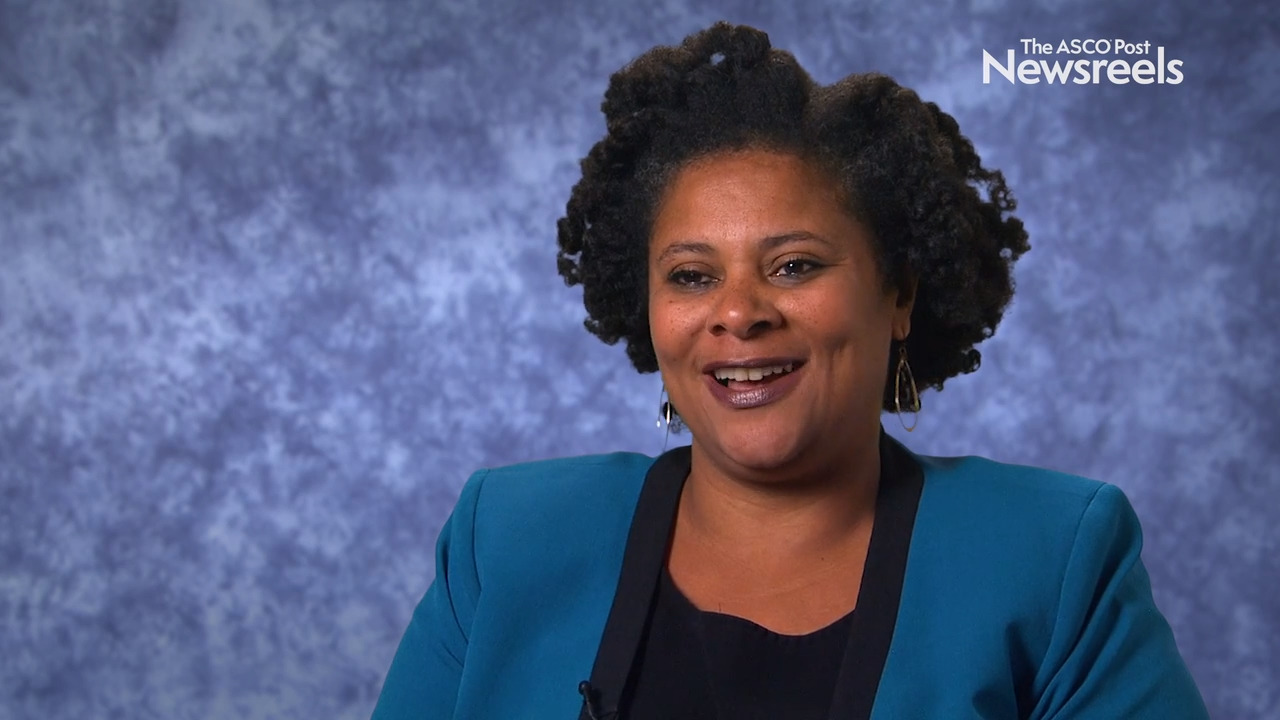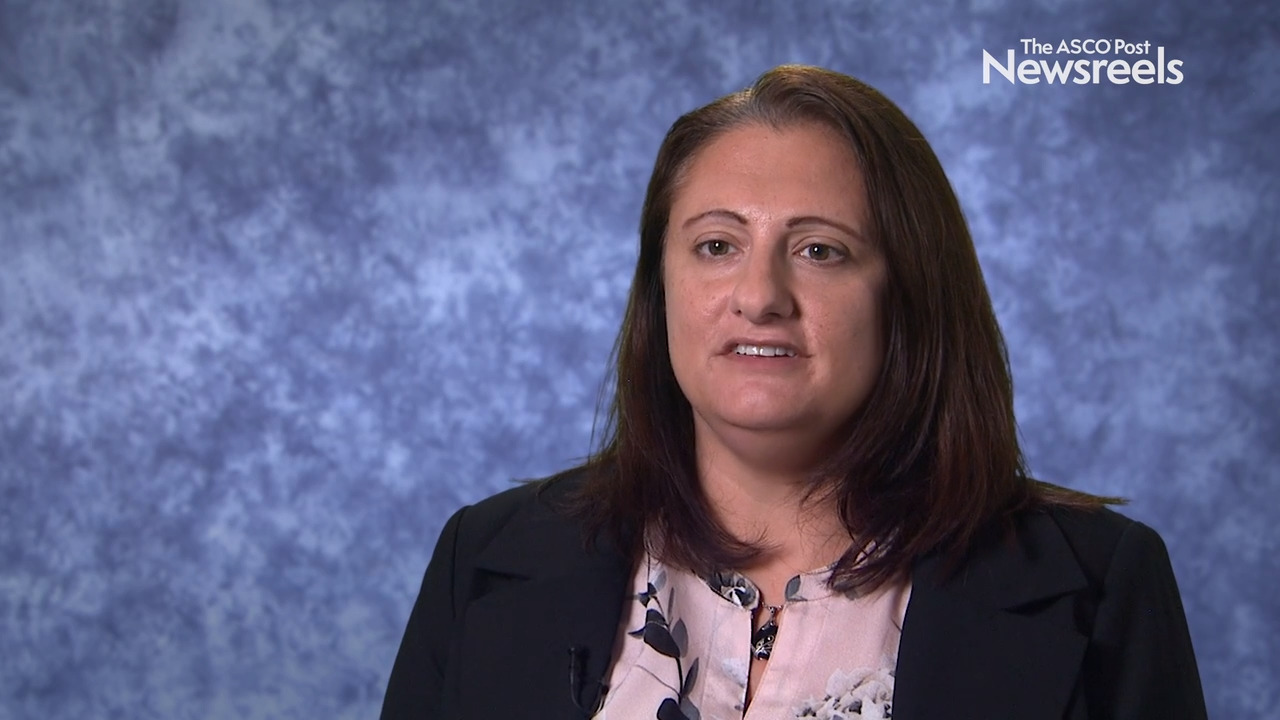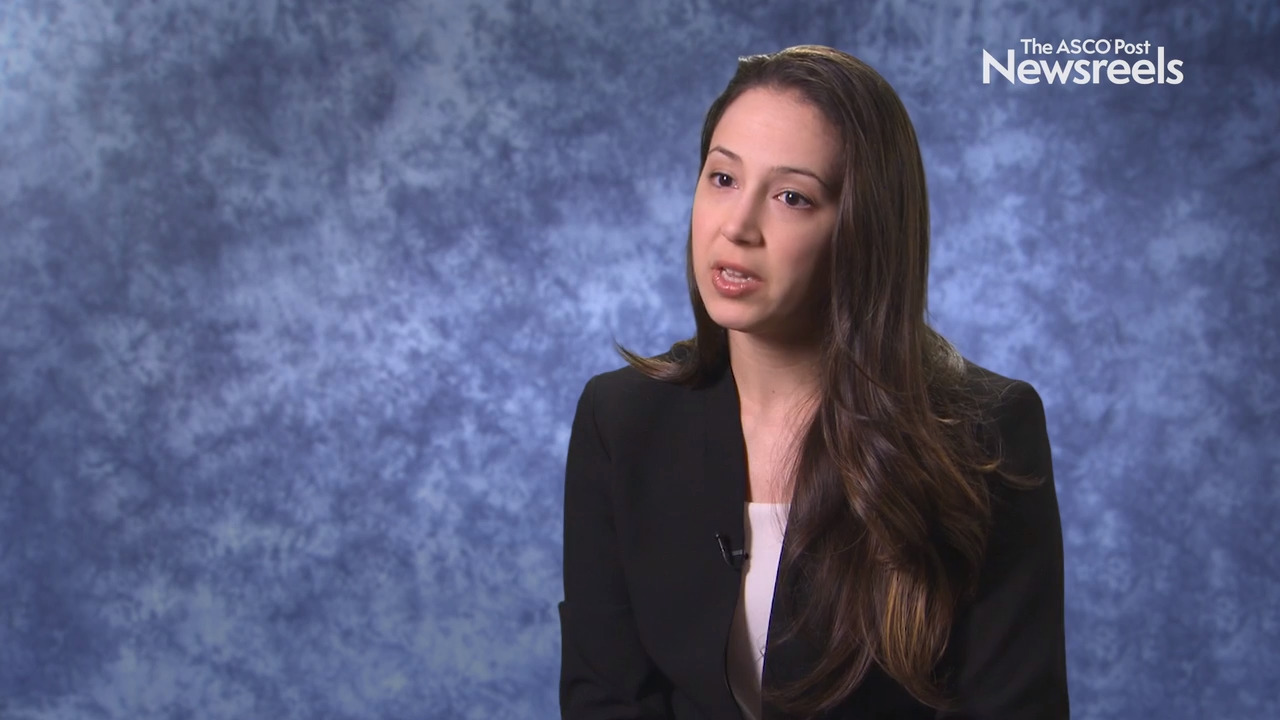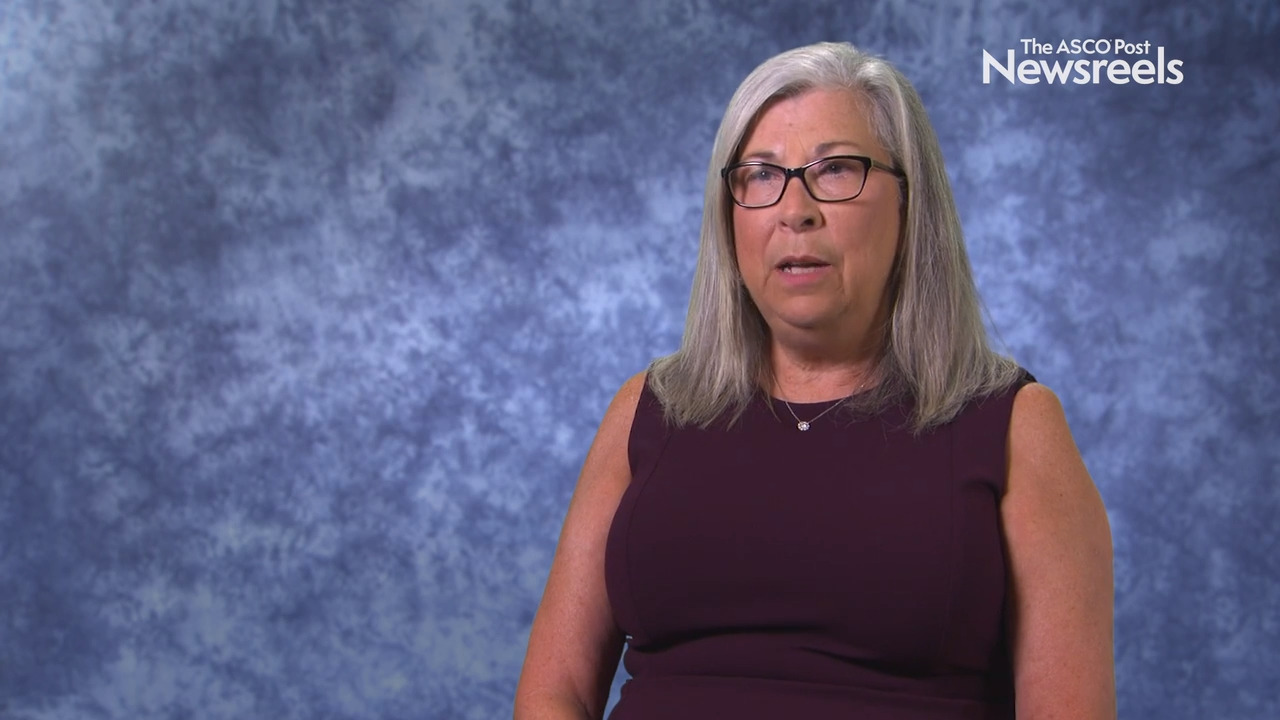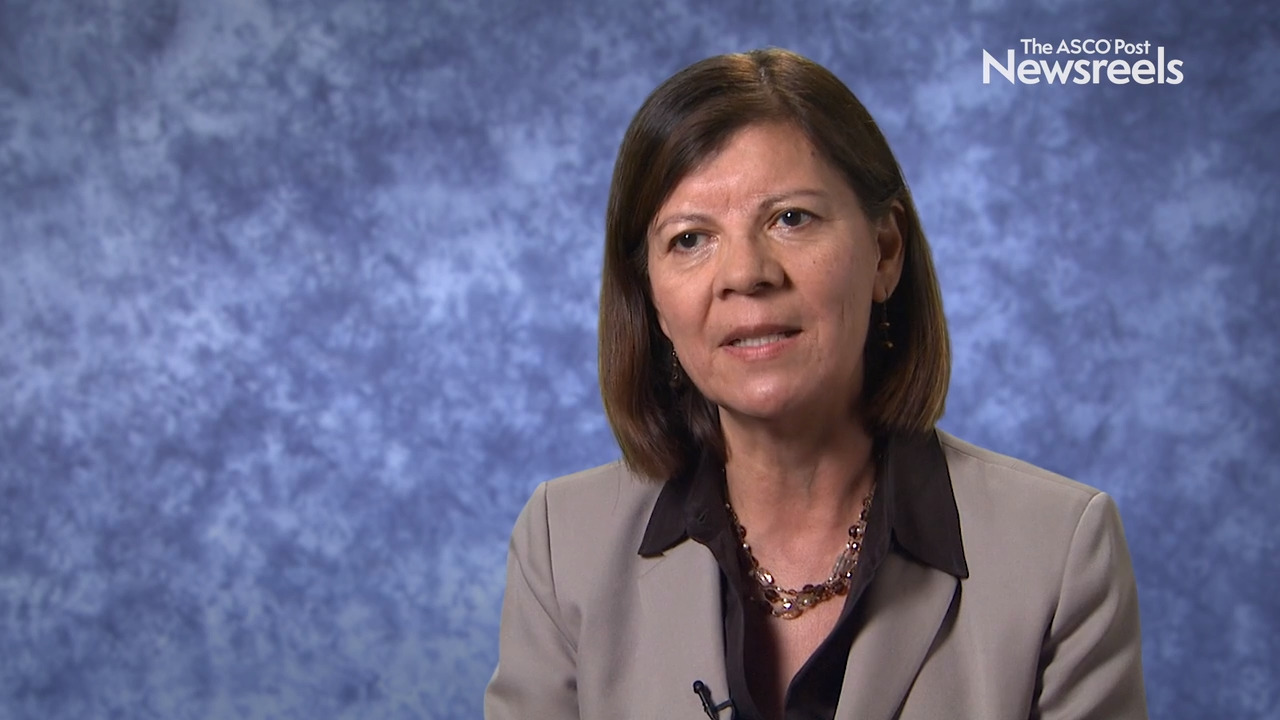Ryan Huey, MD, on the Financial Toxicity of Early-Phase Clinical Trials
2019 Quality Care Symposium
Ryan Huey, MD, of The University of Texas MD Anderson Cancer Center, discusses his findings that showed the large financial burden on lower-income patients enrolled in phase I trials (Abstract 8).
Karen M. Winkfield, MD, PhD, of the Wake Forest Baptist Medical Center, discusses cultural factors that contribute to cancer care disparities, the role of national policy in addressing inequities in access to care, and what local institutions can do to improve the situation.
Angela M. Stover, PhD, of the University of North Carolina at Chapel Hill, discusses ASCO’s initiative to develop patient-based performance measures for assessing and managing symptoms. The measures have made substantial differences in reducing nausea, constipation, and insomnia (Abstract 173).
Cristina Merkhofer, MD, MHS, of Fred Hutchinson Cancer Research Center, discusses study results showing that for patients with metastatic non–small cell lung cancer at her institution, enrolling in a therapeutic drug clinical trial was associated with a 47% lower risk of death, compared with not taking part in a trial (Abstract 137).
Grace C. Hillyer, EdD, MPH, of Columbia University Mailman School of Public Health, discusses the many barriers to enrolling patients in clinical trials, most notably different attitudes toward and perceptions about research studies among clinicians vs patients. Her findings point to the need for better communication between the two groups and more patient input (Abstract 170).
Elena Martinez, PhD, MPH, of Moores Cancer Center at the University of California, San Diego, discusses the challenges of ensuring diversity in precision oncology and potential solutions to address the challenges.
